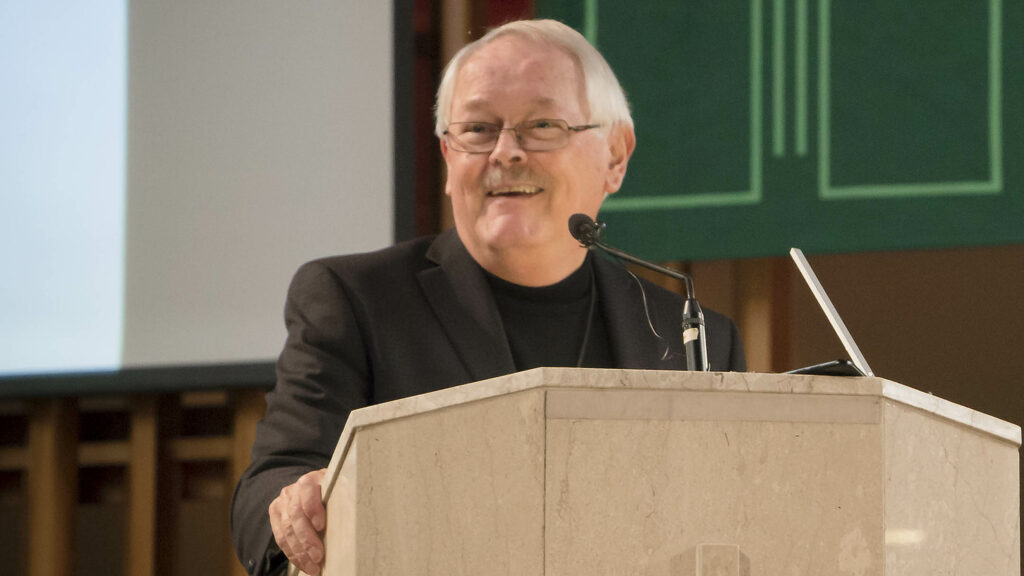Margaret Atwood once wrote that sometimes a thing needs to be said, and said, said again, until it doesn’t need to be said anymore. That’s why I write a column annually on suicide, mostly saying the same things over and over again. The hope is that, like a note put into a bottle and floated out to sea, my little message might find someone needing consolation after losing a loved one to suicide.
What’s needs to be said, and said again, about suicide? Four things.
First, that it’s a disease and perhaps the most misunderstood of all diseases. We tend to think that if a death is self-inflicted, it is voluntary in a way that death through physical illness or accident is not. For most suicides, this isn’t true. A person who dies by suicide dies, as does the victim of a terminal illness or fatal accident, not by his or her own choice. When people die from heart attacks, strokes, cancer, AIDS, and accidents, they die against their will. The same is true for suicide, except that in the case of suicide the breakdown is emotional rather than physical – an emotional stroke, an emotional cancer, a breakdown of the emotional immune system, an emotional fatality.
This is not an analogy. There are different kinds of heart attacks, strokes, cancers, breakdowns of the immune system, and fatal accidents. However, they all have the same effect; they all take someone out of this life against his or her own will. No one who dies through suicide actually wants to die. He or she only wants to end a pain that can no longer be endured, akin to someone jumping to his death out of a burning building because his clothes are on fire.
Second, we should not worry unduly about the eternal salvation of a suicide victim, believing (as we used to) that suicide is the ultimate act of despair and something God will not forgive. God is infinitely more understanding than we are and God’s hands are infinitely safer and gentler than our own. Imagine a loving mother having just given birth, welcoming her child onto her breast for the first time. That, I believe, is the best image we have to picture how a suicide victim (most often an overly sensitive soul) is received into the next life. God is infinitely understanding, loving, and gentle. We need not worry about the fate of anyone, no matter the cause of death, who exits this world honest, oversensitive, gentle, over-wrought, and emotionally crushed. God has a special love for the broken and the crushed.
Knowing all of this however, doesn’t necessarily take away our pain (and anger) at losing someone to suicide; but faith and understanding aren’t meant to take our pain away but rather to give us hope, vision, and support as we walk within our pain.
Third, we should not torture ourselves with second-guessing when we lose a loved one to suicide: “What might I have done? Where did I let this person down? If only I had been there? What if …?” It can be natural to be haunted with the thought, “if only I’d been there at the right time.” Rarely would this have made a difference. Indeed, most of the time, we weren’t there for the exact reason that the person who fell victim to this disease did not want us to be there. He or she picked the moment, the spot, and the means precisely so that we wouldn’t be there. Perhaps it’s more accurate to say that suicide is a disease that picks its victim precisely in such a way so as to exclude others and their attentiveness. This is not an excuse for insensitivity, especially towards those suffering from dangerous depression, but it should be a healthy check against false guilt and fruitless second-guessing.
We’re human beings, not God. People die of illness and accidents all the time and sometimes all the love and attentiveness in the world cannot prevent a loved one from dying. Love, for all its power, is sometimes powerless before a terminal illness.
Fourth, when we lose a loved one to suicide, one of our tasks is to work at redeeming that person’s memory, namely, to put that person’s life into a perspective wherein his or her memory is not forever tainted because it is viewed through the prism of suicide.
A proper human and faith response to suicide should not be horror, fear for the victim’s eternal salvation, guilty second-guessing about how we failed this person, and a hushed, guarded tone forever afterwards when we speak of him or her. Suicide is indeed a horrible way to die, but we must understand it (at least in most cases) as a sickness, a disease, an illness, a tragic breakdown within the emotional immune system. Most of all, we must trust God, God’s goodness, God’s understanding, God’s power to descend into hell, and God’s power to make all things right, even death by suicide.

